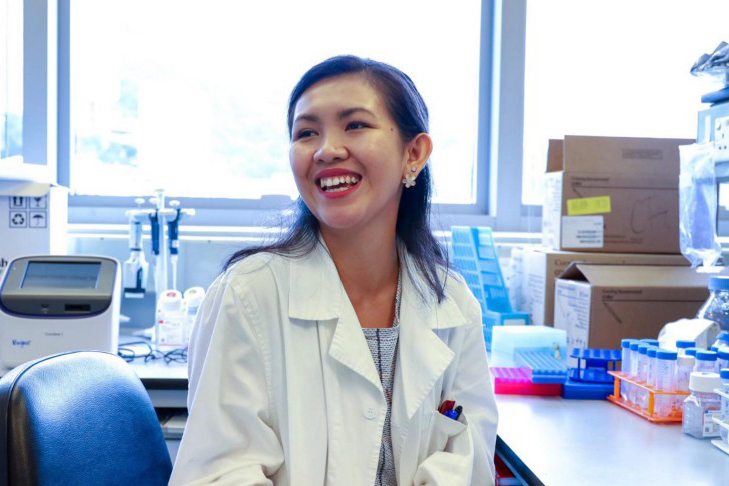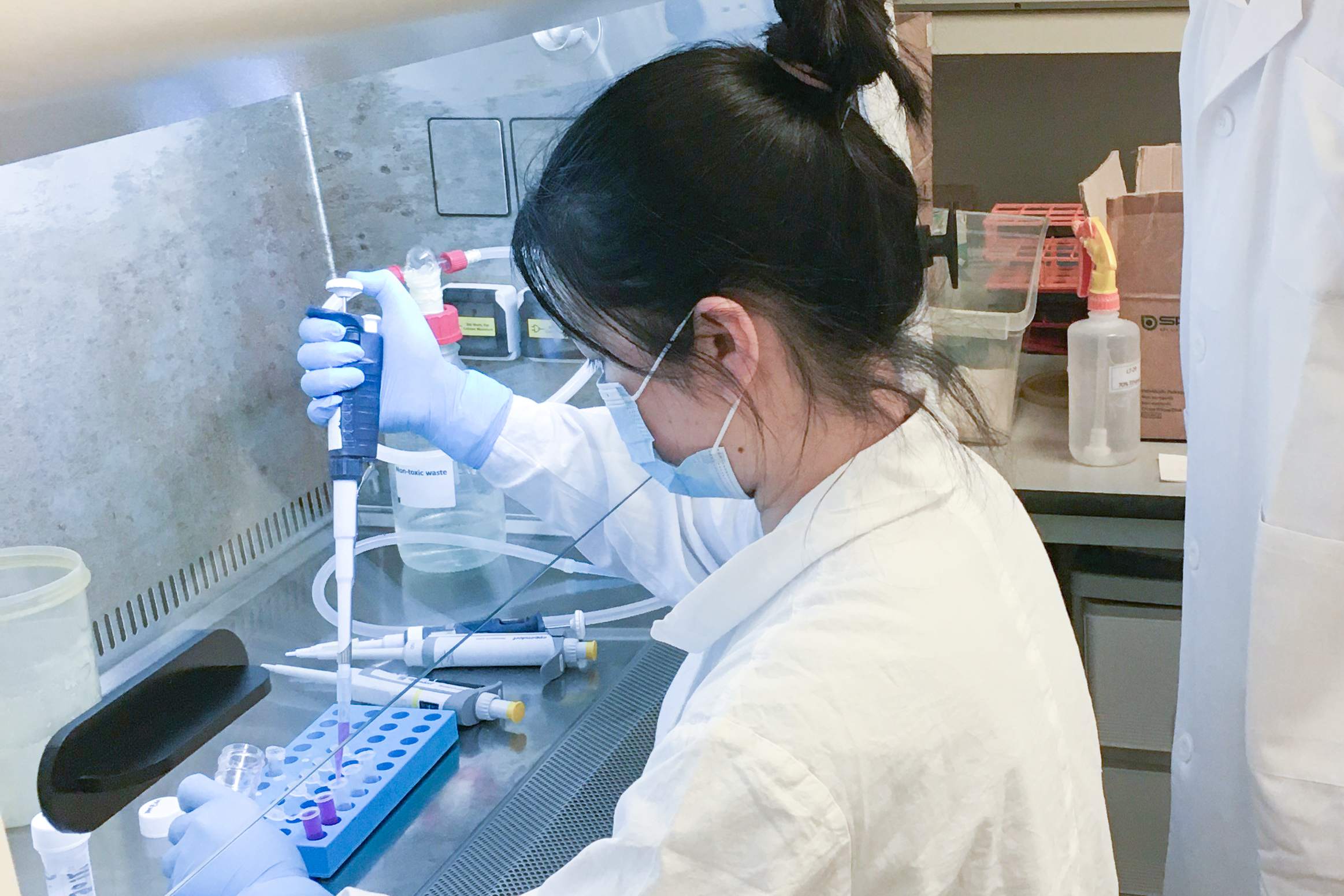Research Area 1: Cancer, Stem Cell Biology, Traditional Chinese Medicine
- Interaction between cancer cells and microenvironment
- Clinical studies on childhood neurogenic tumour (brain tumour, neuroblastoma)
- Biology and application of human mesenchymal stem cells
- Clinical studies on haemopoietic stem cells transplantation
- Effects of purified novel herbal extracts polysaccharides on human immune and cancer cells, including β-glucans
- Clinical study on thalassaemia and iron overload
| Supervisor(s) |
|---|
Research Area 2: Clinical Genetics and Genomics
- Medical application of whole-genome technologies: Using cutting-edge technologies including copy number variants (CNV) arrays, whole exome/genome sequencing and detailed phenotypic evaluation, to identify novel variants/genes involved in the pathogenesis of human diseases
- Clinical genetics and genetic counselling: Disease burden, clinical manifestations and natural history of genetic syndromes; communication/discourse analysis in genetic counselling in different clinical settings including inherited arrhythmia clinics, prenatal diagnosis, preimplantation genetic diagnosis (in collaboration with Dr Olga Zayts, School of English, HKU)
- Epigenetics and human diseases: Using various technologies including bisulphite-converted DNA pyrosequencing, MLPA and whole genome DNA methylation arrays, we study various common and rare disorders in which epigenetics or imprinting is implicated in the pathogenesis
| Supervisor(s) |
|---|
Research Area 3: Developmental Behavioural Paediatrics & Neurorehabilitation
- Disease burden, epidemiology and risk factors of common developmental disorders e.g. Attention-deficit hyperactivity disorders, autism and developmental delay etc.
- Validation of developmental assessment tools and assessment tools for screening of childhood emotional, behavioural difficulties and learning disorders
- Using advance neuroimaging techniques e.g. Diffusion kurtosis/tensor imaging, fMRI or transcranial magnetic stimulation (TMS) to diagnose, prognosticate and manage children with developmental disorders or brain injuries
- New rehabilitation methods to improve the outcomes of children with disabilities
- Cancer survivorship
- Outcomes of children with acquired brain injuries
| Supervisor(s) |
|---|
Research Area 4: Epstein-Barr Virus Biology and Translational Research
- Host-virus interactions in primary and persistent Epstein-Barr virus (EBV) infection and on the elucidation of pathogenic mechanisms of EBV in lymphoid and epithelial cancers
- Role of adaptive immune responses in the control of EBV: longitudinal study of viral loads, humoral and CD8+ T cell responses in patients with primary EBV infection, post-transplant lymphoproliferative disorders and EBV-associated haemophagocytic syndrome
- Sequence analysis of EBV strains in EBV infection subjects and EBV-positive tumours
- Action of different compounds in inducing the lytic cycle of EBV in cancer cells and investigation of mechanistic pathways of viral lytic cycle induction
| Supervisor(s) |
|---|
Research Area 5: Immunology
- Vaccination study on Covid-19 and measles
- Primary immunodeficiency/Inborn errors of immunity
- Lupus genetics
| Supervisor(s) |
|---|
- Viral immunology: Innate and adaptive immune responses to viral infections, such as human and avian influenza A viruses in both human and mouse models including humanised mice
- Transplantation immunology: Biology of human regulatory T cells and their application in transplantation, autoimmune diseases. Viral infection and solid organ transplantation
| Supervisor(s) |
|---|
- Host defence and immune regulation
- Molecular mechanisms of susceptibility to bacterial and fungal infections in primary immunodeficiency disorders
- Inflammasomes: immunopathogenesis in monogenic autoinflammatory syndromes, systemic lupus erythematosis and infectious diseases
- Autophagy as a mechanism of host defence and immune regulation in infectious disease and autoinflammatory disorders
| Supervisor(s) |
|---|
Research Area 6: Molecular Basis of Mammalian Development and Genetic Diseases
- Genetic studies of monogenic diseases; genetic studies of complex diseases especially on autoimmune disorders (for students with a background in medicine or biological sciences)
- Association studies, linkage analysis, exome- and whole-genome sequencing and other cutting-edge technologies as tools to uncover genes involved in various human diseases
- Genomic data analysis, bioinformatics and statistical genetics (for students with a computing or statistics background):
- Computational tools, statistics and data modelling to analyse large amounts of genetics and genomics data and also develop novel tools in these areas
| Supervisor(s) |
|---|
- Genetic studies of monogenic (Mendelian diseases) through whole exome sequencing, whole genome sequencing, and comprehensive analysis of sequencing data
- Genetic studies of complex diseases, especially autoimmune disorders by genome-wide association studies
- Functional studies through -omics and immunological approaches and comprehensive data analysis to gain better understanding of molecular level aberrations of human diseases, especially autoimmune diseases
- Students will be working in an environment to combine both wet-lab experiments using cutting edge technologies and dry-lab data analysis skills to tackle fundamental questions in human autoimmune diseases
| Supervisor(s) |
|---|
Research Area 7: Paediatric Cardiovascular Research
- Novel echocardiographic imaging technologies
- Paediatric and adult congenital heart disease: cardiac mechanics, biomarkers of cardiac dysfunction, and long-term outcomes
- Cardio-oncology
- Arterial dysfunction in the young
- Arterial function in children and adolescents
| Supervisor(s) |
|---|
Research Area 8: Paediatric Neurology Research
- Rare paediatric neuromuscular disorders: Genetic diagnosis, genotypic-phenotypic correlation, patient registry and the impact of new therapies
- Stem cell research for the translational aspects of neuromuscular disorders: Use of patient-derived induced pluripotent stem cells differentiated affected target tissues as disease model to study the underlying mechanisms and potential therapeutic treatment, mainly focus on dystrophinopathy
- Rare paediatric immune-mediated neurological disorders: epidemiology, clinical characteristics, immunological profile and clinical outcome of autoimmune encephalitis and acquired peripheral neuropathies
| Supervisor(s) |
|---|
Research Area 9: Community Paediatrics and Child Health
- Application of the social ecological model to study long-term impact of childhood adversity on health and development through a life course perspective
- Development and evaluation of traditional and technology-based interventions to promote health and health-related outcomes
- Big data research to examine disease epidemiology, burden and outcomes
- Child development and molecular genetics: Using a data-link model to study the genetic influences on health and development
- Population and Cohort studies on different age group to study the epidemiology, biopsychosocial profile, biomarkers and effects of genetics and environment on child health, development, learning and behaviours
- Community based interventional studies to examine effectiveness of parenting, psychosocial and health intervention on wellbeing and outcome of children and families
- Randomised Controlled Studies on application of new drugs and modalities on treatment of neurodevelopmental disorders, epilepsy and mental health diseases
- COVID-19: Clinical Characteristics, Management, Outcomes, Epidemiology and Impact on Children and Families
- Mental health and Environment (include Vitamin D, nutrition and growth)
- Sports and Physical Activities: Population-based and Intervention studies
- ADHD: Aetiologies, Complications and Interventions – Big data and International Study
| Supervisor(s) |
|---|
Research Area 10: Immunology in Paediatric Cancer, Blood, Infection, Vaccine and Immune Disorders
To characterise immunologically the biospecimens obtained from pediatric patients and genetically modified cells, for the understanding of basic pathobiology, identification of new therapeutic targets, generation of novel therapeutic cells, and monitoring of disease response. Laboratory approaches focus on new generation of synthetic biology and immunome analyses..
| Supervisor(s) |
|---|
Research Area 11: Paediatric Haematology and Oncology
- With a focus on neuro-oncology and cancer in young children
| Supervisor(s) |
|---|
Research Area 12: Immunopharmacology and Pharmacogenomics
- Vaccinology
- Cellular immunity underlying measles vaccine failures
- Inborn error of immunity (primary immunodeficiencies) as a cause of vaccine failures in preventing severe infections due to Streptococcus pneumoniae
- Coronavirus disease 2019 vaccine effectiveness – epidemiology and immune mechanisms
- Drug Adverse Events
- Immediate hypersensitivity to beta-lactam antibiotics – epidemiology, diagnostics and immune mechanisms, genetic and genomic predisposition
- Delayed hypersensitivities to anticonvulsants – epidemiology, diagnostics and immune mechanisms, genetic and genomic predisposition
- Immune mechanisms underlying induction of temporary tolerance to medications or immunotherapies (drug desensitization) in children, particularly to chemotherapeutics and antimicrobials
| Supervisor(s) |
|---|
Find Out More
Information on selected projects or research areas: Interested candidates are advised to email the relevant supervisors. Please enclose with your email: (i) your CV, (ii) a brief description of your research interest and experience, and (iii) two reference letters (reference letters not required for HKUMed UG students seeking MRes[Med] or URIS projects)
Research studies enquiries specific to the Department/School’s research should be directed to the Departmental Research Postgraduate Advisor: Prof WL Yang ( yangwl@hku.hk)
Information on the research programme, funding support and admission requirements could be found on the RPg Admissions website.
General admission enquiries should be directed to rpgmed@hku.hk.
Meet Our Students

Fatin Nurizzati BINTI MOHD JAYA
Place of Origin: Brunei
Progress: Graduated in 2020
Supervisor: Professor GCF Chan
Excelling in research and postgraduate studies doesn’t just require a keen sense of focus and academic rigour, it also requires a strong set of persuasion skills and plenty of practice in public speaking.
As champion at the recent Visualise Your Thesis Competition 2019, Fatin Nurizzati, Final Year PhD student from the Department of Paediatrics and Adolescent Medicine, was exceptionally honest about the fact that her first foray into public speaking was not voluntary, “In my very first year as a Masters student, I was asked on the spot by my supervisor to give a short talk at this seminar that I was attending, on my research topic to a crowd of academicians and scientists from different disciplinaries”. Ever since then, Fatin has steadily continued to share her research and partake in academic exchange across disciplines, “Sometimes, in distilling key concepts from you field of study, you have to treat your audience like idiots; the art of public speaking lies in breaking down the most complicated ideas and making sure that even those who had never heard of your field would know what you’re talking about”.
September 2019

Nicodemus WONG
Place of Origin: Canada
Progress: PhD Year 3
Supervisor: Professor YF Cheung
Nicodemus Wong has been fascinated with stem cells since his teens. A second-year PhD student of HKUMed, he has been engrossed in developing induced pluripotent stem cells into cardiac muscle cells as part of a research to study the disease mechanism of congenital heart diseases.
“Learning how to handle stem cells diligently has been the most challenging. But it is very rewarding when I think about how I can improve the quality of life for kids who suffer from these cardiac birth defects,” he says.
August 2019


Follow HKUMed